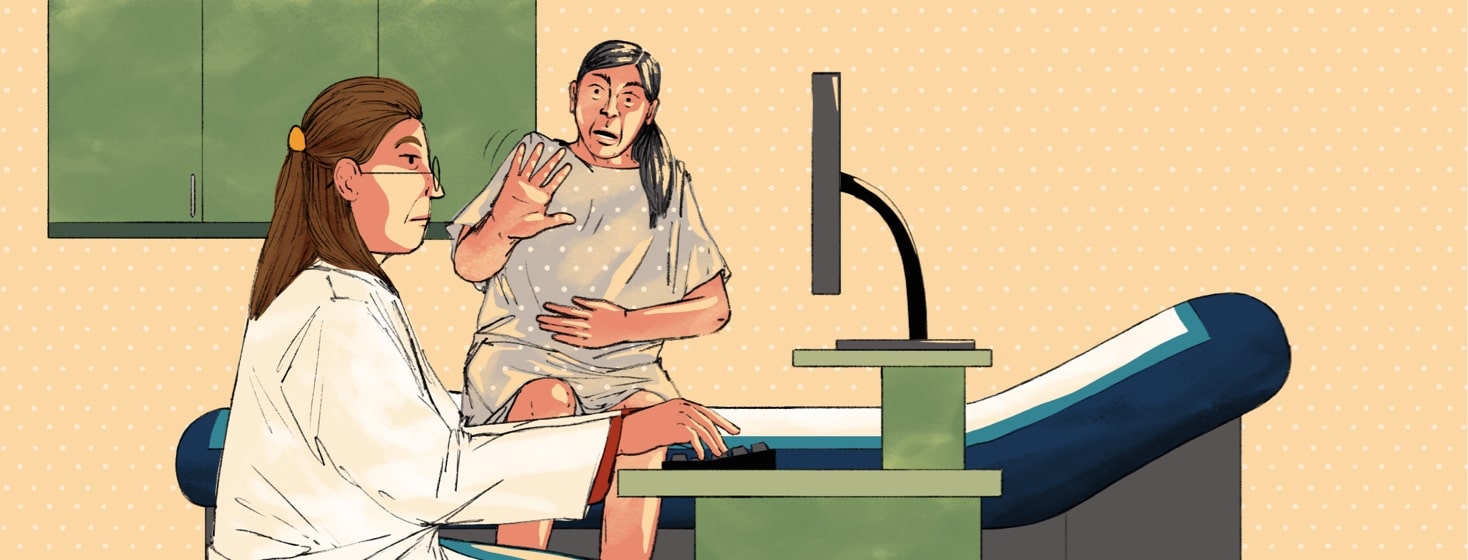The Doctor Said It's Nothing, but My Body Tells a Different Story
We've all been there. You sit across from the doctor, relief washing over you as they finally give you a diagnosis. But as you leave the office, a nagging voice starts whispering in your ear. "What if they missed something?" Second guessing lupus symptoms after a doctor's visit is a common lupus experience, but it can be nervewracking, especially if you worry about being dismissed.
A seed of doubt
I left the doctor's office feeling more confused than relieved. The persistent ache in my lower abdomen had finally prompted me to schedule an appointment, but the doctor brushed it off as minor muscle strain. "Probably just overdid it at the gym," he said with a dismissive smile.
While a part of me wanted to believe him, another part couldn't shake the feeling that something was wrong. The pain wasn't the intense, sharp kind you get from a pulled muscle. It was a dull throb that radiated throughout my lower belly and seemed to worsen throughout the day.
Approaching the doctor with confidence (not confrontation)
Leaving the office, the unease wouldn't dissipate, and I found myself second guessing symptoms once again. I decided to gather my thoughts. Over the next few days, I kept a detailed log of my pain – intensity, location, and any aggravating factors.
I had to find a way to get back in the doctor’s office. Most importantly, I had to contact the office again to speak about what was going on. I was so hesitant because I was frustrated and wanted to make sure I wasn’t being confrontational. By the same token, I had to be confident with my thoughts and talk.
Finding my voice
I hesitated to speak up, worried about being labeled a hypochondriac. Or even labeled as being “difficult.” But then I remembered, this is my body, and I know it best. Taking a deep breath, I voiced my concerns.
I called the doctor, "Doctor," and I began with, "I understand what you've stated, but the pain feels different from anything I've experienced before. Could we maybe explore other possibilities?"
Building trust
The doctor's demeanor shifted slightly. He listened patiently as I described the pain in more detail, mentioning any other symptoms I might have been overlooking. I also mentioned my family history of certain conditions, hoping it might provide a different perspective.
A sliver of hope pierced through my worry. It wasn't a guarantee, but at least I was being heard. The key, I realized, was to be my own advocate. While I respected the doctor's expertise, I also knew my body best.
The path forward
Thankfully, the doctor didn't dismiss me again. He acknowledged my concerns and suggested further tests to rule out anything more serious. It wasn't the outcome I had initially hoped for, another round of appointments and tests, but it was a step in the right direction.
This experience taught me a valuable lesson. I can’t be afraid to speak up, especially when it comes to my health. Doctors are human, and sometimes additional details or new information can lead to a different conclusion.
The important thing to me was to find a way to communicate my concerns effectively to fight health disparities along my journey. At the same time, I can also acknowledge the doctor's expertise. By working together, I realize we can navigate the path towards the proper treatment I deserve.

Join the conversation